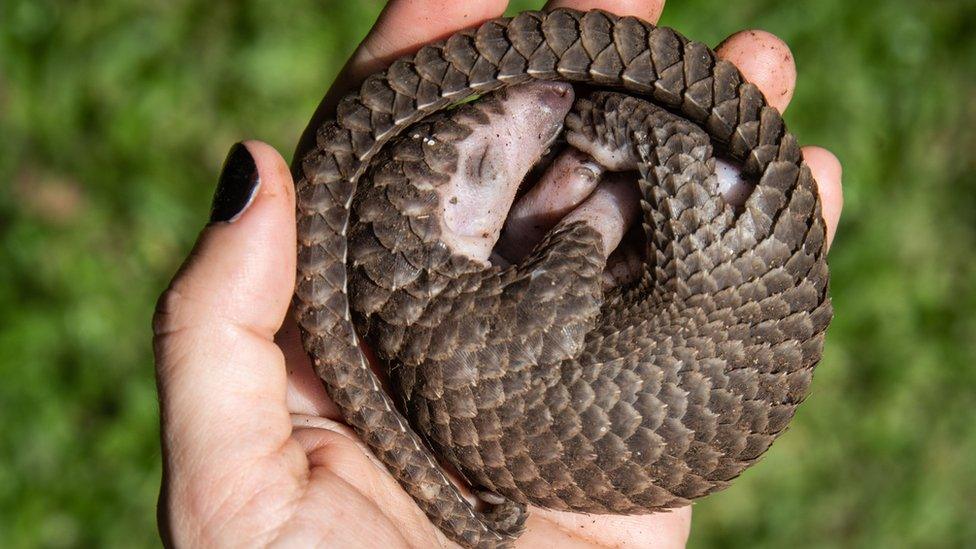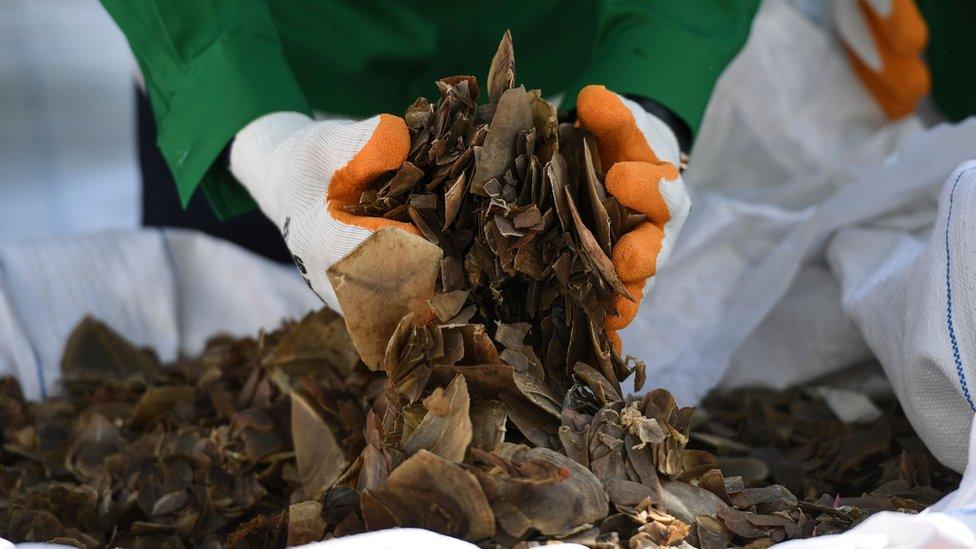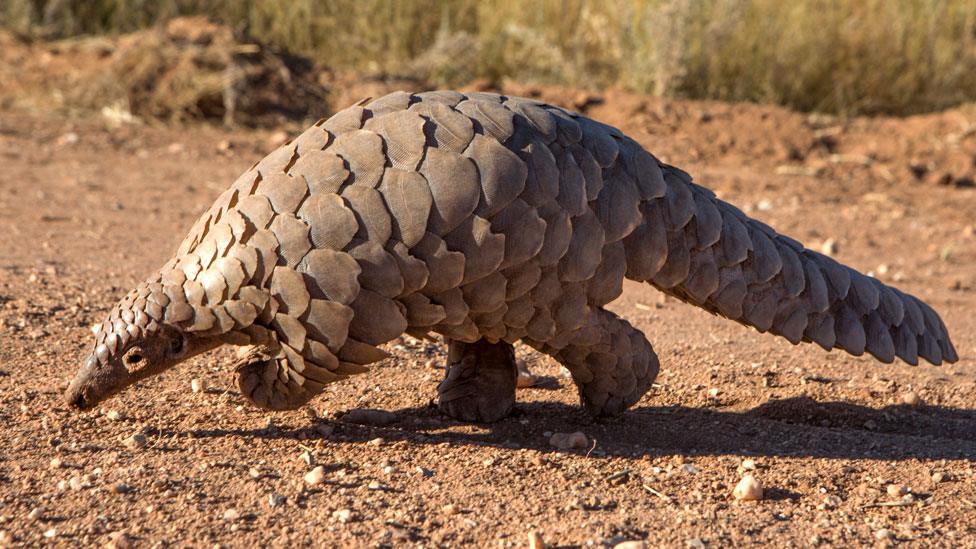Hope for pangolins as protection boosted in China
- Published

Wildlife crime is the greatest threat to the pangolin
Conservation groups have welcomed China's move to remove pangolins from the official list of traditional Chinese medicine treatments, saying this could be a "game changer".
The news, reported by China's Health Times newspaper, comes after China raised the animal's protected status to the highest level last week.
Pangolins have been pushed to the brink by illegal hunting for scales and meat.
They are implicated in coronavirus, but the evidence is unclear.
Conservation charities have welcomed the move to remove them from the official list of traditional Chinese medicines. Paul Thomson of Save Pangolins said it was a breakthrough moment.
"China's move to phase out pangolin scales from traditional medicines could be the game changer we have been waiting for," he said.
"We hope China's next move will be to enforce the regulations and work to change consumer behaviour."

Hundreds of thousands of pangolins have been killed for their scales
And Katheryn Wise of animal welfare campaign group, World Animal Protection, said it was "great news" that China had upgraded pangolins to the highest level of protection and removed them from the Chinese Pharmacopoeia.
She called for this to be extended to all wild animals, "who, like pangolins, are poached from the wild and often placed in squalid, cramped cages, creating a lethal hotbed of disease".
'Milestone' in wildlife protection
Pangolins are covered with a layer of scales, which are designed to protect them against predators. The scales are highly coveted by traditional Chinese medicine practitioners, while pangolin meat is seen as a delicacy.
China banned the consumption of live wild animals for food in the wake of the outbreak, but there are certain exemptions, such as for medicine or fur.
Pangolins are in the spotlight as a possible animal host for coronavirus, but no direct link has been shown.

There are eight species of pangolin across Asia and Africa
Nicole Benjamin-Fink of Conservation Beyond Borders said that, whether pangolins served as the conduit for the coronavirus or not, it's time to halt the demand for the most trafficked mammals worldwide.
"Let's hope that this ban is the first in a series that ultimately ban all wildlife usage in traditional Chinese medicine," she said.
Pangolins eat ants and other insects, and are often known as the scaly anteater. All eight species are protected under international law, but trade has been growing.
Follow Helen on Twitter, external.